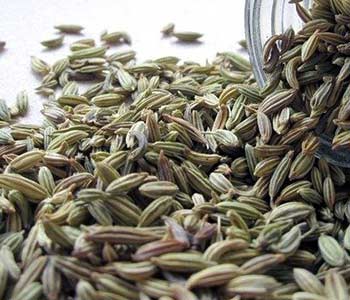Your IQ Is 140 Or Higher If You Know The Longitude and Latitude Of These Cities

Have you ever noticed how your mood can affect your food choices, and how the foods you eat can, in turn, influence your mood? The relationship between food and mental well-being is a fascinating one, and science has been uncovering more and more evidence about the powerful role that nutrition plays in our emotional and mental health.
Below, we will explore nine foods that have been shown to enhance mood and mental well-being. These foods are not only delicious but also packed with nutrients that can help you feel your best. So, let's dive in and discover how you can eat your way to a happier, healthier you!
1. Fatty Fish
Fatty fish, such as salmon, mackerel, and sardines, are rich in omega-3 fatty acids, which are essential for brain health. Omega-3s have been shown to reduce inflammation, improve brain function, and lower the risk of depression [1]. In fact, a study published in the Journal of Epidemiology and Community Health found that people who ate the most fish had a 17% lower risk of depression compared to those who ate the least [2].
2. Dark Chocolate
Dark chocolate is not only a delicious treat but also a mood-boosting superfood. It contains compounds like theobromine and caffeine, which can improve mood and cognitive function [3]. Dark chocolate is also rich in flavonoids, antioxidants that have been linked to a reduced risk of depression [4]. Just be sure to choose dark chocolate with a high cocoa content (70% or higher) and enjoy it in moderation.
3. Berries
Berries, such as strawberries, blueberries, and raspberries, are packed with antioxidants and phytochemicals that can improve brain function and reduce inflammation [5]. Studies have also found that consuming berries regularly can help reduce the risk of depression and other mental health disorders [6]. So, add a handful of berries to your morning yogurt or oatmeal for a mood-boosting breakfast.
4. Nuts and Seeds
Nuts and seeds, such as almonds, walnuts, and pumpkin seeds, are excellent sources of healthy fats, protein, and minerals like magnesium and zinc. These nutrients are essential for brain health and have been linked to a reduced risk of depression and other mental health disorders [7]. A study published in the journal Nutrients found that consuming 30 grams of nuts per day (about a handful) can improve mood and reduce feelings of anxiety and depression [8].
5. Fermented Foods
Fermented foods, such as yogurt, kefir, kimchi, and sauerkraut, are rich in probiotics, beneficial bacteria that can improve gut health and boost mood. The gut-brain axis is a complex communication system between the gut and the brain, and research has shown that the health of our gut can have a significant impact on our mental well-being [9]. In fact, a study published in the journal Psychiatry Research found that consuming probiotic-rich foods can reduce symptoms of depression and anxiety [10].
6. Leafy Greens
Leafy greens, such as spinach, kale, and collard greens, are packed with nutrients that are essential for brain health, including folate, vitamin C, and beta-carotene. These nutrients have been linked to a reduced risk of depression and cognitive decline [11]. Leafy greens are also rich in magnesium, a mineral that has been shown to improve mood and reduce feelings of anxiety [12].
7. Whole Grains
Whole grains, such as brown rice, quinoa, and whole wheat bread, are rich in complex carbohydrates, fiber, and B vitamins, which are essential for brain health and mood regulation. Complex carbohydrates provide a slow and steady release of energy, which can help stabilize blood sugar levels and reduce mood swings [13]. B vitamins, particularly folate and vitamin B12, have been linked to a reduced risk of depression and other mental health disorders [14].
8. Lentils
Lentils are a type of legume that is packed with nutrients that are essential for mental well-being, including protein, fiber, and minerals like iron and magnesium. Lentils are also a good source of folate, a B vitamin that has been linked to a reduced risk of depression [15]. A study published in the Journal of Affective Disorders found that consuming a diet rich in legumes, including lentils, can improve mood and reduce symptoms of depression [16].
9. Eggs
Eggs are a versatile and nutritious food that can help boost mood and mental well-being. They are rich in protein, healthy fats, and nutrients like choline and vitamin D, which are essential for brain health. Choline is a nutrient that is important for the production of neurotransmitters like serotonin and dopamine, which regulate mood [17]. Vitamin D has been linked to a reduced risk of depression and other mental health disorders [18].
Incorporating these nine foods into your diet can be a simple and delicious way to enhance your mood and mental well-being. However, it's important to remember that a healthy diet is just one piece of the puzzle when it comes to mental health. Other factors, such as exercise, sleep, stress management, and social support, also play important roles in promoting emotional and mental well-being.
If you are struggling with depression, anxiety, or other mental health concerns, it's important to seek help from a qualified healthcare professional. While a healthy diet can certainly support mental well-being, it is not a substitute for professional treatment.
In conclusion, the foods we eat can have a powerful impact on our mood and mental well-being. By incorporating these nine mood-boosting foods into your diet, you can help support your brain health and emotional well-being. So, the next time you're feeling down, reach for a handful of nuts, a piece of dark chocolate, or a bowl of berries – your brain (and taste buds) will thank you!
References:
- Chatterjee, R. (2019). The 4 Pillar Plan: How to Relax, Eat, Move, and Sleep Your Way to a Longer, Healthier Life. Penguin Life.
- Li, F., Liu, X., & Zhang, D. (2016). Fish consumption and risk of depression: A meta-analysis. Journal of Epidemiology and Community Health, 70(3), 299-304. https://doi.org/10.1136/jech-2015-206278
- Nehlig, A. (2013). The neuroprotective effects of cocoa flavanol and its influence on cognitive performance. British Journal of Clinical Pharmacology, 75(3), 716-727. https://doi.org/10.1111/j.1365-2125.2012.04378.x
- Pase, M. P., Scholey, A. B., Pipingas, A., Kras, M., Nolidin, K., Gibbs, A., ... & Stough, C. (2013). Cocoa polyphenols enhance positive mood states and cognitive performance in healthy participants: a randomized, placebo-controlled, double-blind trial. Journal of Psychopharmacology, 27(5), 451-458. https://doi.org/10.1177/0269881112473791
- Miller, M. G., Thangthaeng, N., Poulose, S. M., & Shukitt-Hale, B. (2017). Role of fruits, nuts, and vegetables in maintaining cognitive health. Experimental Gerontology, 94, 24-28. https://doi.org/10.1016/j.exger.2016.12.014
- Agarwal, U., Mishra, S., Xu, J., Levin, S., Gonzales, J., & Barnard, N. D. (2015). A multicenter randomized controlled trial of a nutrition intervention program in a multiethnic adult population in the corporate setting reduces depression and anxiety and improves quality of life: the GEICO study. American Journal of Health Promotion, 29(4), 245-254. https://doi.org/10.4278/ajhp.130218-QUAN-72
- Pribis, P. (2016). Effects of walnut consumption on mood in young adults—a randomized controlled trial. Nutrients, 8(11), 668. https://doi.org/10.3390/nu8110668
- Dolgoff, R. (2019). The Smoothie Plan: The 21-Day Program to Lose Weight, Gain Energy, and Feel Great in Your Body. Rodale Books.
- Carabotti, M., Scirocco, A., Maselli, M. A., & Severi, C. (2015). The gut-brain axis: interactions between enteric microbiota, central and enteric nervous systems. Annals of Gastroenterology, 28(2), 203-209. https://www.ncbi.nlm.nih.gov/pmc/articles/PMC4367209/
- Huang, R., Wang, K., & Hu, J. (2016). Effect of probiotics on depression: a systematic review and meta-analysis of randomized controlled trials. Nutrients, 8(8), 483. https://doi.org/10.3390/nu8080483
- Saghafian, F., Malmir, H., Saneei, P., Milajerdi, A., Larijani, B., & Esmaillzadeh, A. (2018). Fruit and vegetable consumption and risk of depression: accumulative evidence from an updated systematic review and meta-analysis of epidemiological studies. British Journal of Nutrition, 119(10), 1087-1101. https://doi.org/10.1017/S0007114518000697
- Rajizadeh, A., Mozaffari-Khosravi, H., Yassini-Ardakani, M., & Dehghani, A. (2017). Effect of magnesium supplementation on depression status in depressed patients with magnesium deficiency: A randomized, double-blind, placebo-controlled trial. Nutrition, 35, 56-60. https://doi.org/10.1016/j.nut.2016.10.014
- Gangwisch, J. E., Hale, L., Garcia, L., Malaspina, D., Opler, M. G., Payne, M. E., ... & Lane, D. (2015). High glycemic index diet as a risk factor for depression: analyses from the Women's Health Initiative. American Journal of Clinical Nutrition, 102(2), 454-463. https://doi.org/10.3945/ajcn.114.103846
- Almeida, O. P., Ford, A. H., & Flicker, L. (2015). Systematic review and meta-analysis of randomized placebo-controlled trials of folate and vitamin B12 for depression. International Psychogeriatrics, 27(5), 727-737. https://doi.org/10.1017/S1041610215000046
- Mccann, A., Mcnulty, H., Rigby, J., Hughes, C. F., Hoey, L., Molloy, A. M., ... & Moore, A. (2018). Effect of area‐level socioeconomic deprivation on risk of cognitive dysfunction in older adults. Journal of the American Geriatrics Society, 66(7), 1269-1275. https://doi.org/10.1111/jgs.15258
- Sanchez-Villegas, A., Martínez-González, M. A., Estruch, R., Salas-Salvadó, J., Corella, D., Covas, M. I., ... & Serra-Majem, L. (2013). Mediterranean dietary pattern and depression: the PREDIMED randomized trial. BMC Medicine, 11(1), 208. https://doi.org/10.1186/1741-7015-11-208
- Ylilauri, M. P., Voutilainen, S., Lönnroos, E., Mursu, J., Virtanen, H. E., Koskinen, T. T., ... & Virtanen, J. K. (2017). Association of dietary cholesterol and egg intakes with the risk of incident dementia or Alzheimer disease: the Kuopio Ischaemic Heart Disease Risk Factor Study. The American Journal of Clinical Nutrition, 105(2), 476-484. https://doi.org/10.3945/ajcn.116.146753
- Anglin, R. E., Samaan, Z., Walter, S. D., & McDonald, S. D. (2013). Vitamin D deficiency and depression in adults: systematic review and meta-analysis. The British Journal of Psychiatry, 202(2), 100-107. https://doi.org/10.1192/bjp.bp.111.106666









